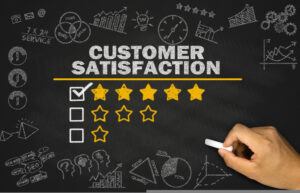It’s not an understatement to suggest that a majority of the world wants to move beyond the COVID-19 crisis. The question is: Are we ready for a ‘full-throttle’ reopening?
A glimpse at the large unmasked crowds filling outdoor venues and stadiums for end-of-summer concerts and NFL games might lead you to assume that the U.S. public is onboard with ending all COVID restrictions — and ready for a full reopening. An accurate picture is much more complicated and reflective of the opinions held throughout the pandemic.
Concerns About a Full Reopening
Health & Economics
The most often stated concern expressed by many around a full reopening is for the health and welfare of their families, loved ones, and fellow citizens should a complete reopening further exacerbate the spread of the virus. Some also believe a significant portion of the US population is already at risk economically from the current surge. They believe the danger of further spikes in the virus to these communities from eliminating all restrictions would have an outsized impact on their future economic development, and potentially that of the entire country.
The concern for the economic impact on these groups is partly due to the effects of vaccine politicization and the resulting lack of vaccinations within these vulnerable communities.
The fear is that challenged socio-economic communities with low vaccination rates, already experiencing a disproportionate concentration of the economic impacts during the pandemic, face the highest risk from eliminating restrictions and fully reopening.
The belief is that a surge in the virus, as a result of lifting all restrictions, could even set the stage for an expansion of the existing economic divide in the US and increase polarization within the country based on location, wealth, and political affiliation.
Upsides of a Full Reopening
Economics, Human Rights & Political Freedom
Opinions on the benefits of a full reopening and lifting of all pandemic-related restrictions often span national borders and roughly fit into the categories of economics, human rights, and political freedom.
There is a consensus among many pro-business economists that the impact of continued closures on the long-term health of the global economy is comparable or even outweighs the risks associated with the virus.
Others point to the potential for an increase in human rights and political freedoms around the world, slowly degraded throughout the entirety of the pandemic, as another benefit of a complete reopening.
Supporters & Detractors
Politics, Parents & Small Business Owners
There are as many different groups for or against a complete reopening as nuanced reasons and arguments.
A recent poll cited “Three in five Americans (60%) believe returning to their pre-coronavirus life right now would be a large or moderate risk, the highest level since early March.” and “Majorities of Americans continue to support policies requiring the use of masks in schools (70%) or public places (66%).”
One of the starker divides and perhaps the one to receive the most attention pertains to political affiliation. Political conservatives on the right are generally in favor of opening and eliminating all restrictions. And liberals on the left tend to be more cautious and favor a safety-first approach. This trend is observable across many countries with advanced economies around the world.
A more evenly divided group includes parents, teachers, and school officials with concerns about the safety and welfare of children as they return to school.
Small business owners, on the other hand, while widely seen as celebrating the initial loosening of restrictions, tend to fall along ideological lines either for or against some continued COVID restrictions.
In the end, though the issue of reopening remains contentious and fraught with peril for politicians, business owners, parents, and many others, there is solace in the assurance that the goal of full reopening remains the same, even if the exact timing remains up for debate.
At MAi Research, we help clients navigate real world challenges by designing and conducting actionable research studies to drive effective business decisions.










